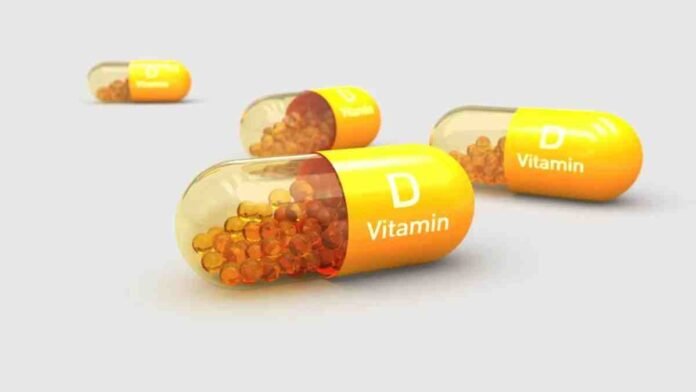Vitamin D, sometimes referred to as the ‘sunshine vitamin,’ is essential for immune system support, bone health, and calcium and phosphorus regulation. Despite being a necessary nutrient, vitamin D deficiency can cause significant health problems. However, Vitamin D risks arise when supplements are taken without a test and self-diagnosing vitamin D deficiency, potentially leading to excessive or needless consumption. This may cause toxicity or conceal other underlying issues
To safely profit from it, one must be aware of the dangers of improper use and know how to take it
Vitamin D toxicity (hypervitaminosis D)
Vitamin D toxicity is a rare and potentially harmful type of disease that is brought on by consuming more vitamin D than is advised. Hypercalcemia is the outcome of the body having too much vitamin D, which raises calcium levels. Nausea, vomiting, weakness, increased urination, and, in more severe cases, renal damage or calcium deposits in the heart and lungs are all signs of vitamin D poisoning—high-dose vitamin D supplement overuse without a doctor’s supervision. Megadoses of vitamin D should only be taken as directed by a physician.
A calcium deficiency
Although vitamin D aids in the body’s absorption of calcium, excessive use might upset the equilibrium. Cardiovascular problems, soft tissue calcification, and kidney stones can result from high calcium levels. Avoid taking large amounts of vitamin D before properly checking your calcium levels.
Gastrointestinal problems
Inappropriate consumption of vitamin D supplements can cause diarrhea, constipation, and nausea, among other digestive problems. This frequently happens when people take too many vitamins or on an empty stomach. The gut function may be impacted by high dosages of vitamin D or by taking it without food. For optimal absorption, take vitamin D alongside a meal that includes healthy fats.
Interaction with medication
Certain medications, such as corticosteroids, weight-loss pills, and treatments for epilepsy or cholesterol control, may interact with vitamin D supplements. The prescription or vitamin D supplement may become less effective as a result of these interactions. Without speaking with a doctor before beginning a supplement regimen. To prevent interactions, talk to your doctor about all of your drugs and supplements.
How to safely consume vitamin D
It’s crucial to perform a quick 25-hydroxy vitamin D test to check your blood levels before using vitamin D pills. This aids in identifying your optimal levels, sufficiency, and deficiencies. A vitamin D deficit that necessitates supplementation is often indicated by a reading below 20 ng/mL. Vitamin D is available in two forms: D2 (ergocalciferol) and D3 (cholecalciferol). When it comes to increasing and sustaining blood levels of vitamin D, vitamin D3 works better. Incorporate foods like fatty fish (salmon, mackerel), egg yolks, and fortified foods into your diet, and pick premium, third-party-tested vitamin D3 supplements.
Since vitamin D is fat-soluble, eating meals high in healthy fats improves absorption. To get the most out of it, don’t take it on an empty stomach. Vitamin D is naturally found in sunlight. Maintaining appropriate levels can be facilitated by spending 15 to 30 minutes each day outside, exposing your face, arms, or legs to sunlight. How to take vitamin D to increase its efficacy
How to take vitamin D to increase its efficacy
Calcium, magnesium, and vitamin K2 work in concert with vitamin D to support calcium metabolism and bone health. To make sure your vitamin D and calcium levels stay within the safe range, blood levels should be checked on a regular basis if you are taking high-dose vitamin D supplements or have a medical condition. Unless prescribed by your doctor for a severe deficiency, stay away from high dosages. Long-term exposure to high dosages can be harmful.
Certain medical conditions, such as obesity, kidney illness, or gastrointestinal issues, may hamper vitamin D metabolism or absorption. Talk to your healthcare practitioner about these diseases and how supplements can help manage them. Seasons can affect vitamin D levels because the sun doesn’t always shine. This necessitates a commensurate change in vitamin D consumption, particularly in the winter.



